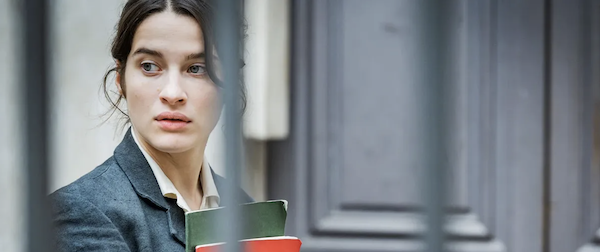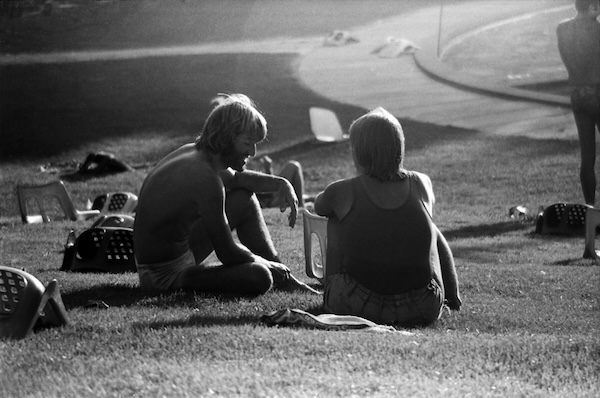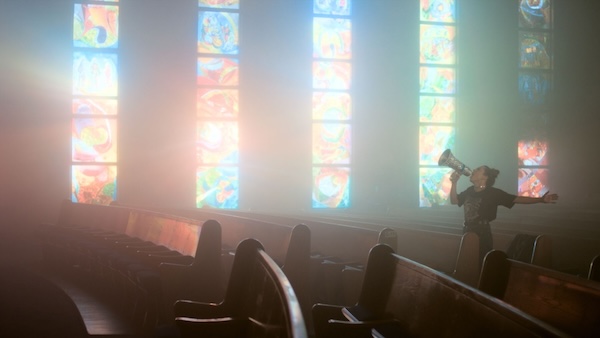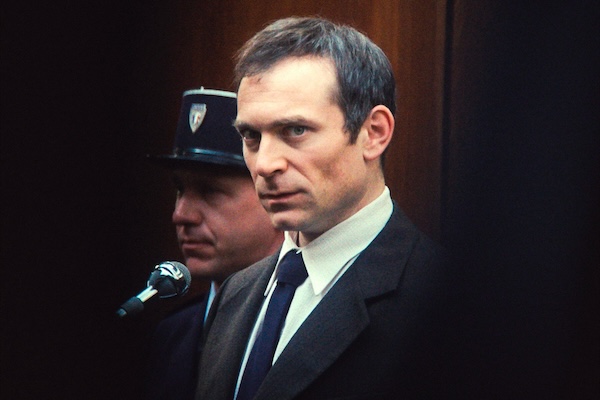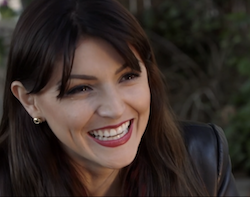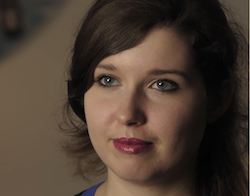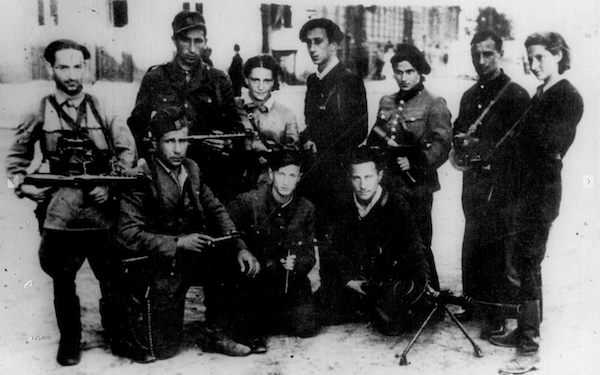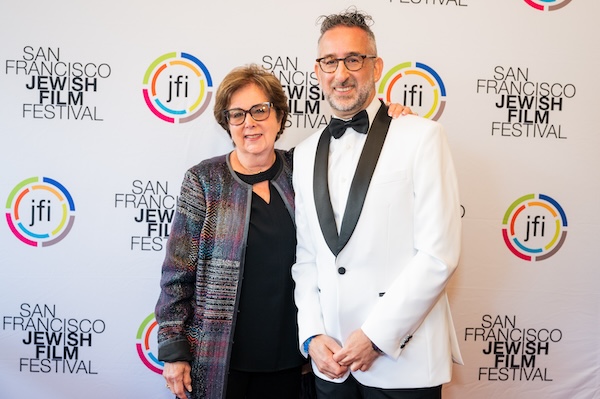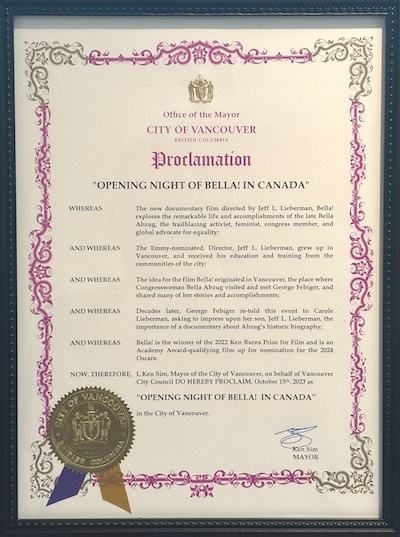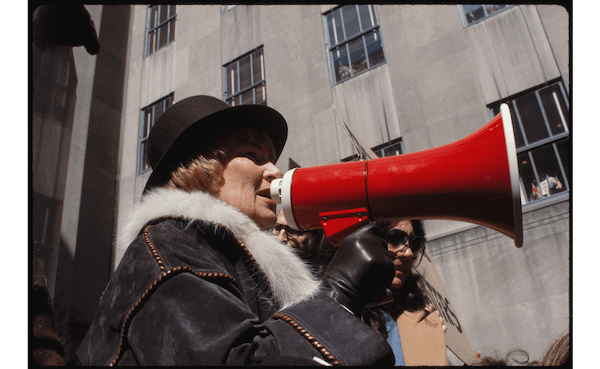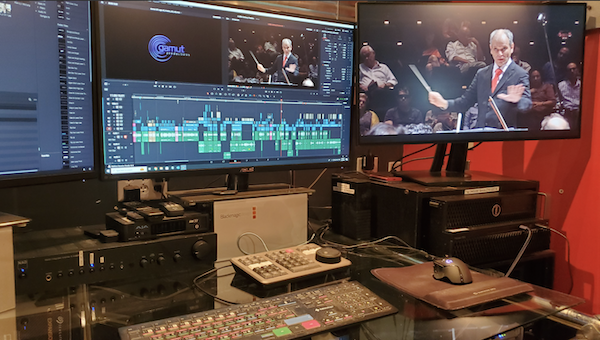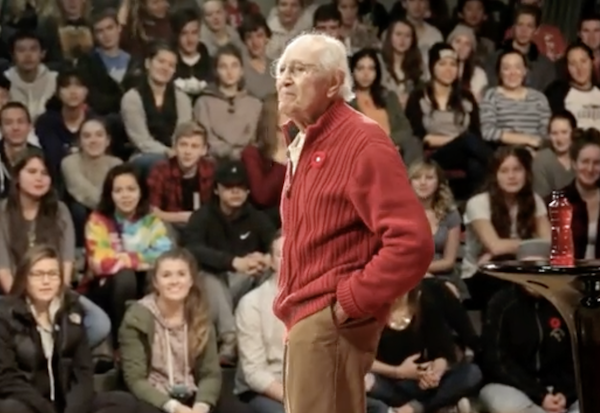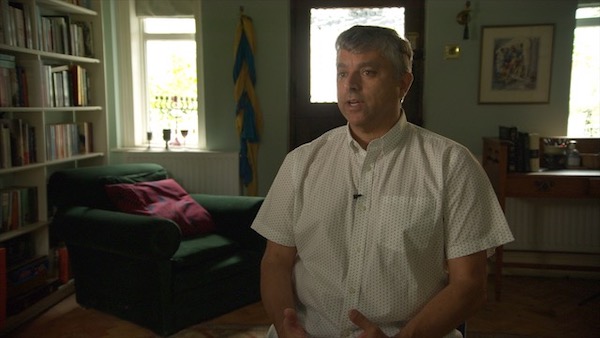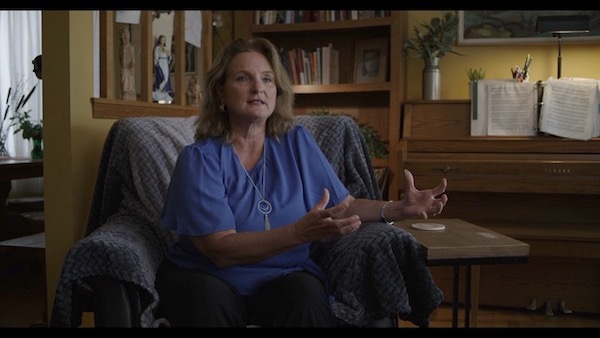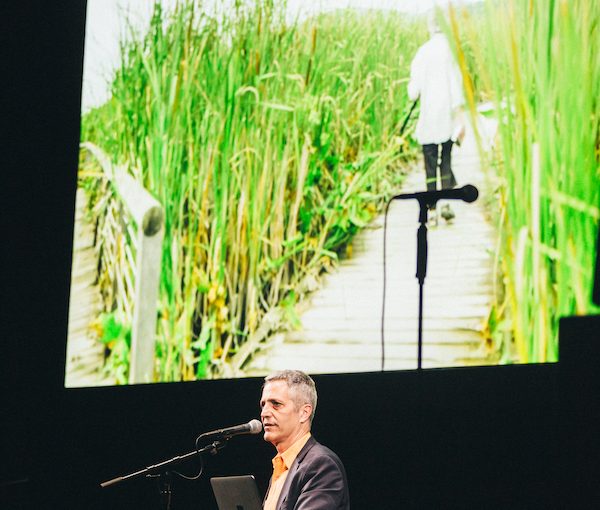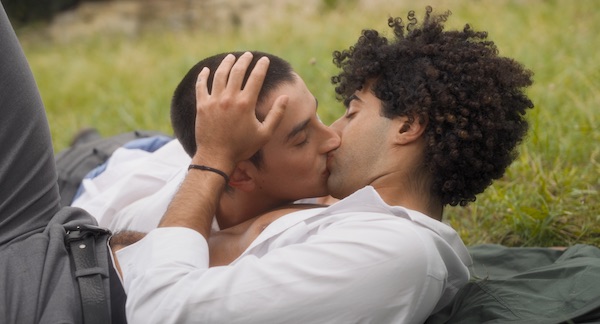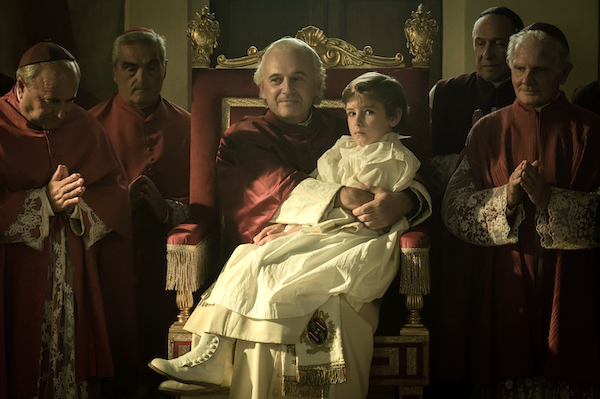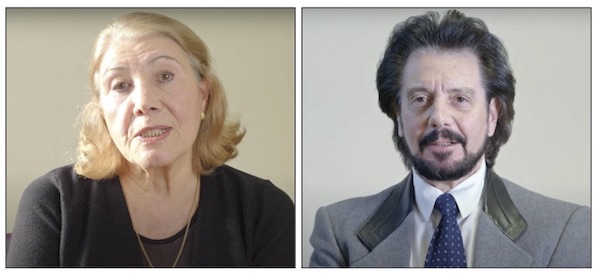A Radiant Girl (still from film)
As the Vancouver Jewish Film Festival approaches, the Jewish Independent reviews three more of the festival’s offerings: A Radiant Girl, All About the Levkovitches and One More Story.
Linking past to present?
In A Radiant Girl, 19-year-old Irene (Rebecca Marder) is an actress whose incessant theatrics get on her family’s nerves but the enthusiasm for performing that she and her diverse group of drama student friends exhibit provides a convenient distraction to the events going on around her in 1942 Paris.
A succession of Nazi policies add up, one after another, from the “Juive” stamped in red on her identity papers to the expropriation of Jewish people’s bicycles, radios and telephones, but Irene and her friends continue their thespian activities, mostly oblivious to larger events. The viewer, of course, knows that more ominous things await but the ending is both dramatic and subtly understated.
Costuming and hairstyles in the film do not always clearly situate the timeframe of events, especially early on, and a viewer beginning the film without any background might not be certain if it is set in contemporary times or another era. As the movie progresses, automobiles and more clearly discernible 1940s clothing styles make the era more specific. But is the filmmaker sending a message about the timelessness of vigilance against the slow drip of authoritarian actions that can lead to totalitarianism and catastrophe?
Shadow boxing
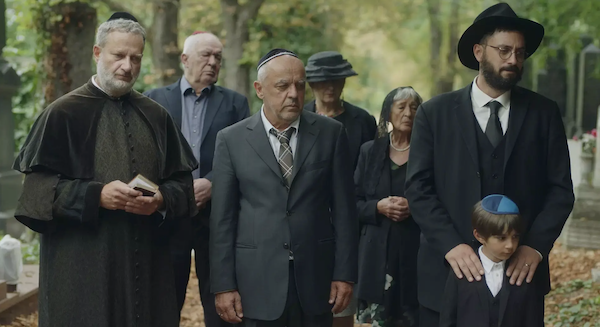
A family drama is at the heart of All About the Levkovitches, in which Tamás, an aging boxing coach in Hungary (Bezerédi Zoltán) is forced to confront his estranged son Iván (Tamás Szabó Kimmel) who, recently religious, returns from Israel for his mother’s shiva, hauling along his young son.
The decidedly unobservant father/widower has no interest in following traditional Jewish mourning rituals. “What’s a minyan?” asks one of his friends as he explains what is happening at home. “A bunch of Jews in my house,” he replies. (“When my mother died, we just drank,” the friend says.) The arrival of the local Jews to pray with the grieving son while the father goes about his business in an undershirt is a priceless vignette of worldviews colliding.
The father, who doesn’t know any Hebrew, and his grandson, who may or may not understand Hungarian, eventually find a common language. So, too, do the estranged father and son, through much fighting, boxing, arguing and wrestling demons.
The grandfather’s disastrous attempt to assemble a Scandinavian do-it-yourself wall unit as his own ritual tribute to his late wife is a metaphor for his fumbling way of dealing with crisis, a project that is (somewhat predictably) resolved when the handy ba’al teshuvah son finally relents to helping, resolving not just the bookshelf problem but the larger issue of how things fit together.
It is a darkly hilarious and often emotionally moving drama.
Live, laugh, love

In One More Story, Yarden (played by Dina Sanderson) is a 20-something journalist at Israel’s largest-circulation newspaper and needs an attention-grabbing human interest series. She goes to that old standby, modern dating, and sets up doofus Adam on a series of disastrous dates, aiming for the print media version of the reality TV dating genre.
She recounts the foibles of Adam’s love life – with flashbacks to cringe-inducing interactions between the hapless Adam and a stream of mismatched potential romantic interests – while herself on a first date (with the film’s director Guri Alfi, playing the bad first date foil for Yarden’s storytelling).
The bad dates within a bad date motif provides a canvas for a variety show-style packed script of hilariously calamitous meetups. But Adam goes off script when love at first sight hits him out of the blue – literally – which does not coincide with Yarden’s journalistic requirements.
There is nothing particularly innovative in the romantic comedy department, but the witty writing and vivacious acting, plus a veritable bombardment of sight gags and more subtle facial expressions, make the film a laugh riot and a delight.
Watch vjff.org for the full lineup and tickets for the Vancouver Jewish Film Festival, which runs April 4-14 in theatre and April 15-19 online.

